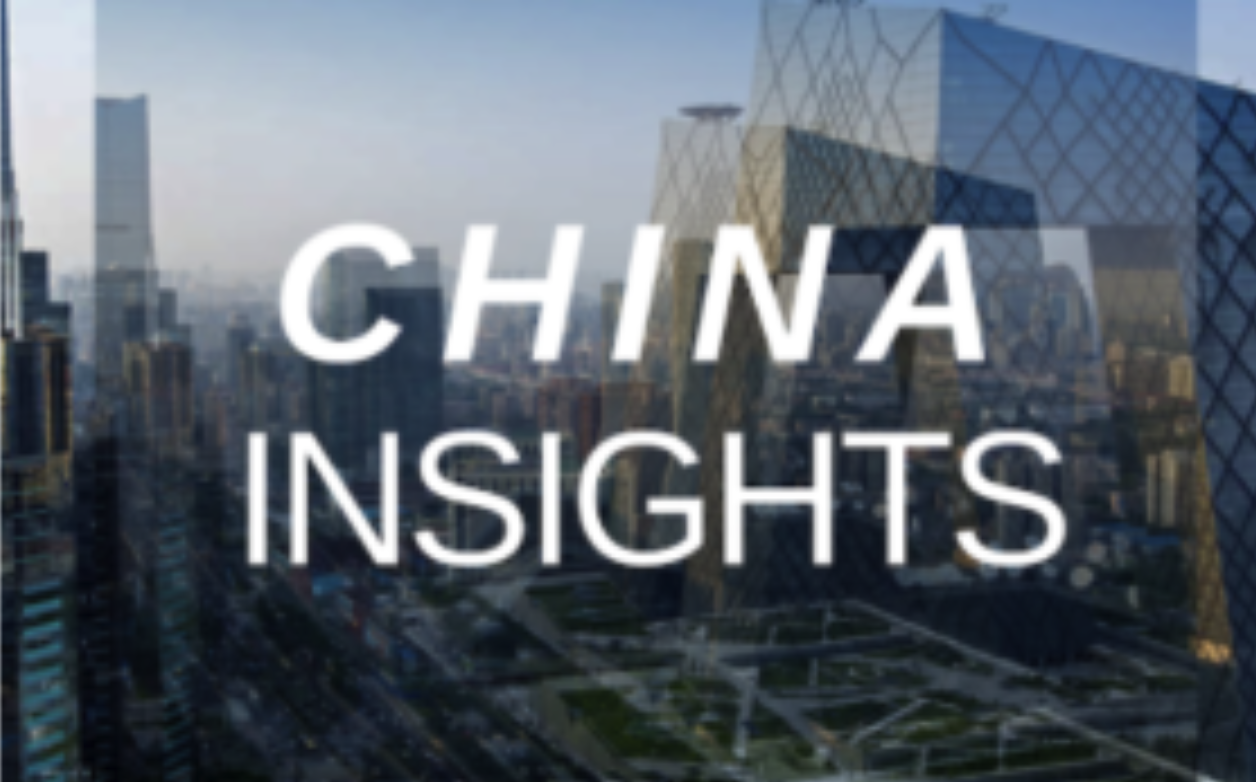Founded in Stockholm, Sweden, in 1970, Kreab is a global strategic communications consultancy with offices in 25 countries, serving over 500 global clients. Kreab advises on communication issues of strategic importance in business, finance, and politics, helping clients solve complex communications challenges and achieve their strategic goals. The Kreab Beijing team is well known for its track record of helping clients manage and strengthen their reputation through services spanning corporate communications, financial communications, public affairs, and social media. Contact Kreab at kchina@kreab.com, follow Kreab on WeChat (ID: KreabChina), or visit Kreab’s website at https://www.kreab.com/beijing.
Swedcham China Insight for the week of 8 September -12 September, 2025

Weekly China Insight
Beijing, 12 September 2025
Xi urges BRICS unity amid and calls for expanded Global South leadership
On 8 September, Chinese President Xi Jinping delivered a keynote speech at the virtual BRICS summit, warning against “hegemonism, unilateralism, and protectionism” as global trade tensions escalate. Without naming the US directly, Xi criticized the rise of tariffs and sanctions as threats to global stability, calling on BRICS members to uphold multilateralism, defend WTO-centered trade rules, and resist economic decoupling. He proposed three core principles for BRICS cooperation: defending international fairness through multilateralism, promoting inclusive economic globalization, and deepening intra-bloc collaboration in trade, finance, and technology. Xi described BRICS as the “vanguard of the Global South,” representing nearly half of the world’s population and 30% of global GDP.
The summit, hosted by Brazilian President Lula da Silva, reflected widening strategic divergence within the group. India’s Prime Minister Modi skipped the meeting, sending Foreign Minister Jaishankar instead, who raised concerns over trade deficits with fellow BRICS members. Lula emphasized the need for a unified BRICS stance on key issues, while also softening rhetoric toward Washington to preserve diplomatic flexibility. Leaders broadly supported China’s Global Development Initiative and reaffirmed the bloc’s opposition to sanctions and unilateralism.
Bilateral cabinet level calls and a US congressional delegation point to possible Trump-Xi summit as US-China dialogue resumes
In the past week, three separate diplomatic developments have paved the way for a potential meeting between Chinese President Xi Jinping and US President Donald Trump later this year. Specifically, a bipartisan US House delegation led by Congressman Adam Smith is scheduled to visit China later this month, marking the first official visit by US House Representatives in over six years. The trip, which will include members of the House Armed Services Committee, is seen as a rare gesture of goodwill amid entrenched bilateral tensions.
On 10 September, Chinese Foreign Minister Wang Yi held a phone call with US Secretary of State Marco Rubio. Both sides emphasized the need to deepen communication, manage differences, and explore practical cooperation. Wang warned against “negative actions” by the US, particularly on Taiwan, but framed the relationship as a shared responsibility between two major powers, referencing past US-China cooperation during WWII. On 9 September, Chinese Defense Minister Dong Jun held a video call with US Secretary of Defense Pete Hegseth, calling for “equal, respectful, and stable” military ties while strongly opposing US support for Taiwan and regional military provocations in the South China Sea. Despite sharp rhetoric, the call marked a rare military-to-military engagement between the two countries.
While major disputes remain, renewed high-level engagement across legislative, diplomatic, and military channels suggests both sides are seeking to stabilize ties ahead of the Asia-Pacific Economic Cooperation (APEC) summit in late October or during a potential Trump visit to China.
China enforces mandatory AI content labeling rules across platforms
On 1 September, a regulation mandating mandatory labeling of generative AI content officially went into effect, requiring all internet platforms and AI content providers to label AI-generated content with both explicit (e.g. text, watermark) and implicit (metadata) labels. The regulation, jointly issued by the cyberspace regulator (CAC), the industrial regulator (MIIT), the Ministry of Public Security, and the National Radio and Television Administration, prohibits the deletion, alteration, or concealment of these labels and mandates platforms to classify AI-generated content as "generated," "possibly generated," or "suspected generated."
In response, major AI firms and internet platforms such as DeepSeek, Zhipu AI, SenseTime, Douyin, and Xiaohongshu have implemented visible and metadata-based tags across their services. For instance, Zhipu’s platform now adds a watermark and an embedded "digital ID" to each AI-generated item, while Douyin (TikTok's Chinese version) uses algorithmic detection to flag unlabelled AI content and appends implicit metadata. Some platforms also require real-name verification and place responsibility for AI-generated outcomes on the user. The new rules follow an April campaign by the CAC targeting AI abuse, including fake news and deepfakes.
The mandatory labeling system reinforces Beijing’s tightening grip on generative AI, signaling a shift from ethical guidance to enforceable regulation, with significant compliance and trust implications for tech platforms, content creators, and multinational corporations operating in China.
China’s August export growth slows to 4.4%, weighed down by weak US demand
On 8 September, China’s General Administration of Customs reported that exports rose 4.4% y/y in August, down sharply from July’s 7.2% y/y and marking the lowest growth in five months. Imports increased by just 1.3% y/y, also below expectations, as domestic demand and commodity prices softened. The trade surplus reached USD 102.3 billion, up USD 4.1 billion from July. Export growth to the US fell dramatically by 33.1% y/y, its second consecutive double-digit monthly decline. Meanwhile, China’s exports to the EU (+10.8% y/y), Japan (+7.0% y/y), and ASEAN (+22.7% y/y) all accelerated in August. High-tech exports such as integrated circuits (+33.0% y/y) and LCD modules (+13.8% y/y) outperformed, even as low-end manufacturing exports like shoes and apparel declined by double digits.
From January to August, total trade grew 3.5% y/y to RMB 29.57 trillion, with exports up 6.9% y/y and imports down 1.2% y/y. ASEAN remained China’s top trading partner, while trade with the US contracted by 13.5% y/y.
China’s trade remains resilient, increasingly reliant on high-tech exports and emerging markets to offset weakening US demand.
